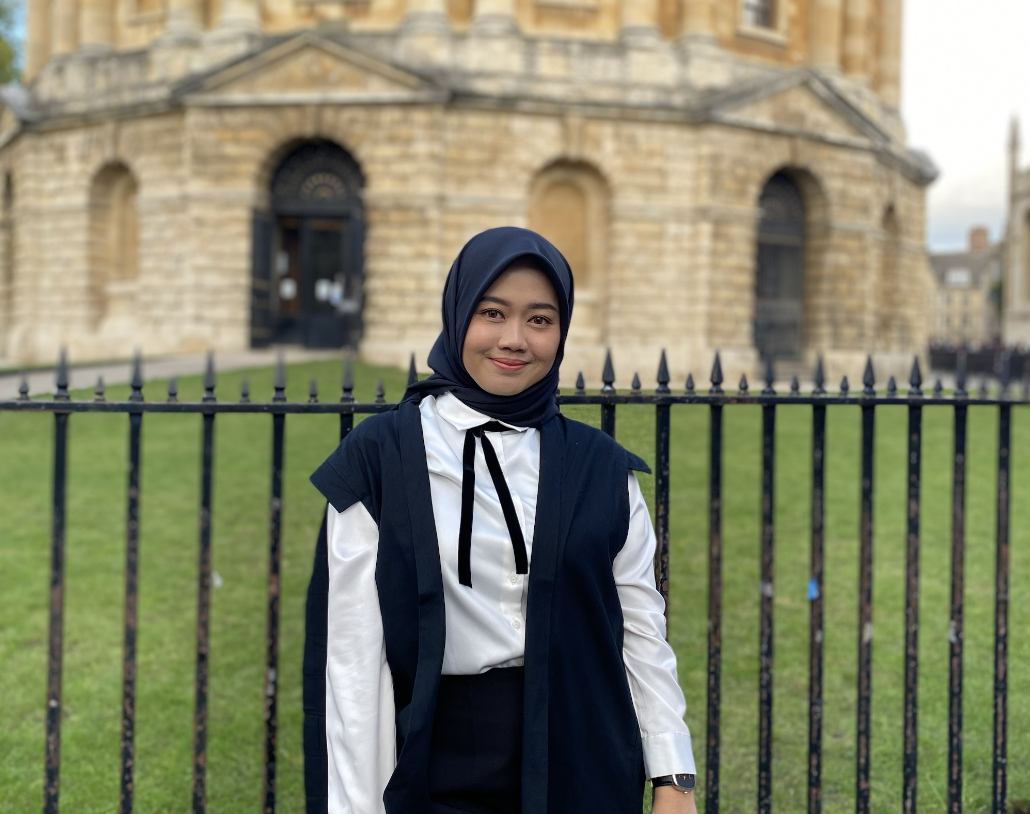Women and access to education: a story from Indonesia
As we celebrate this year’s Women’s History Month, MPP student Rita Nurhasanah, writes about the importance of education for women’s chances in life.
There are some moments which make me stop in my tracks and think about systemic problems beyond criminal justice, particularly for women.
With a background in Indonesia’s Ministry of Law and Human Rights and experience of working inside women's prisons, I vividly recall a conversation with a female inmate who did not know the meaning of the word "pendidikan", which translates in English as "education". I was stunned. But it made me realise that the woman I was talking to might have a different reality from me. As the conversation continued, I discovered that she’d never had the opportunity to go to school, couldn’t read or write, and had got married young.
This story is just one of hundreds of stories that represent women inside prison; I kept thinking to myself, will their lives change if they are able to go to school? What is the reality for women who are unable to read and write because they grew up believing that education is not a part of their lives?
This education gap impacts women's perception about themselves and their full potential, diminishing opportunities for empowerment. I firmly believe that exposure to education throughout your upbringing significantly challenges how you perceive yourself. Unfortunately, women who grow up with relatively less access to education and a disadvantaged upbringing tend to suffer more with fewer opportunities to fulfil their potential.
My work in a remote area in Indonesia showed me that the lack of awareness of pursuing education is still a problem, and I'm not even talking about higher education; I have seen the generational problem when some parents don't understand the necessity of sending their child to primary school. Consequently, women tend to get married at a very young age, bearing the cost of pregnancy and raising children without a proper education. The cycle is then repeated to the next generation.
A path to move forward
Gender equality is a broad topic, and solving the issue is not just about proposing one or two solutions. For me, it's about a constant and collective movement to build a more inclusive society, with access to education, especially in rural areas, access to childcare, political participation, and more community-based movements.
Women’s empowerment is a process, and it is crucial to challenge the norms within society to empower women to be the better version of themselves. With the rapid use of social media by the younger generation, we can spread a positive narrative that women can do so much more.
Message to young women and girls in Indonesia
As someone who grew up without exposure to higher education, I know that sometimes, your world and reality might seem far from your expectations. I am aware that the barrier for some women is endless; I know for a fact that to pursue your dream university, you need determination and resources to pass the test and selection process. I hold on to the belief that if I work hard to achieve my dream, I will gain something along the way. While the door for me is not entirely closed, it requires constant effort and dedication to open it.
I am the first in my family to pursue higher education at a university, and it was a difficult to convince myself that I should pursue something this challenging as it's not a normal "phase" where I grew up. Expanding my perceptions through reading books, engaging in discussions with the diverse group of colleagues in my MPP class, and looking to powerful and successful women as role models will help me navigate my journey.
Finance shouldn’t be a barrier to studying in Oxford

I wouldn't be at Oxford if it was not for my scholarship – huge thanks to the Indonesia Endowment Fund for Education (LPDP). If you are thinking of applying for this scholarship – or any scholarship - it's fundamental to ask yourself why you think you deserve such generous funding to help you on your journey to addressing these societal challenges - it could be directly linked to your personal or working experience, or issues that you genuinely care about.
Celebrating Women’s History Month
Women’s history month is really close to my heart. It’s about acknowledging women’s roles in society and the impact it can have for the next generation to come. This is also an opportunity to remember that some women still live in different realities, and some are trying to unlock their full potential. We need to work collectively to challenge the norms that limit women’s rights and opportunities.
Rita is an Indonesia Endowment Fund for Education (LPDP) scholar.

